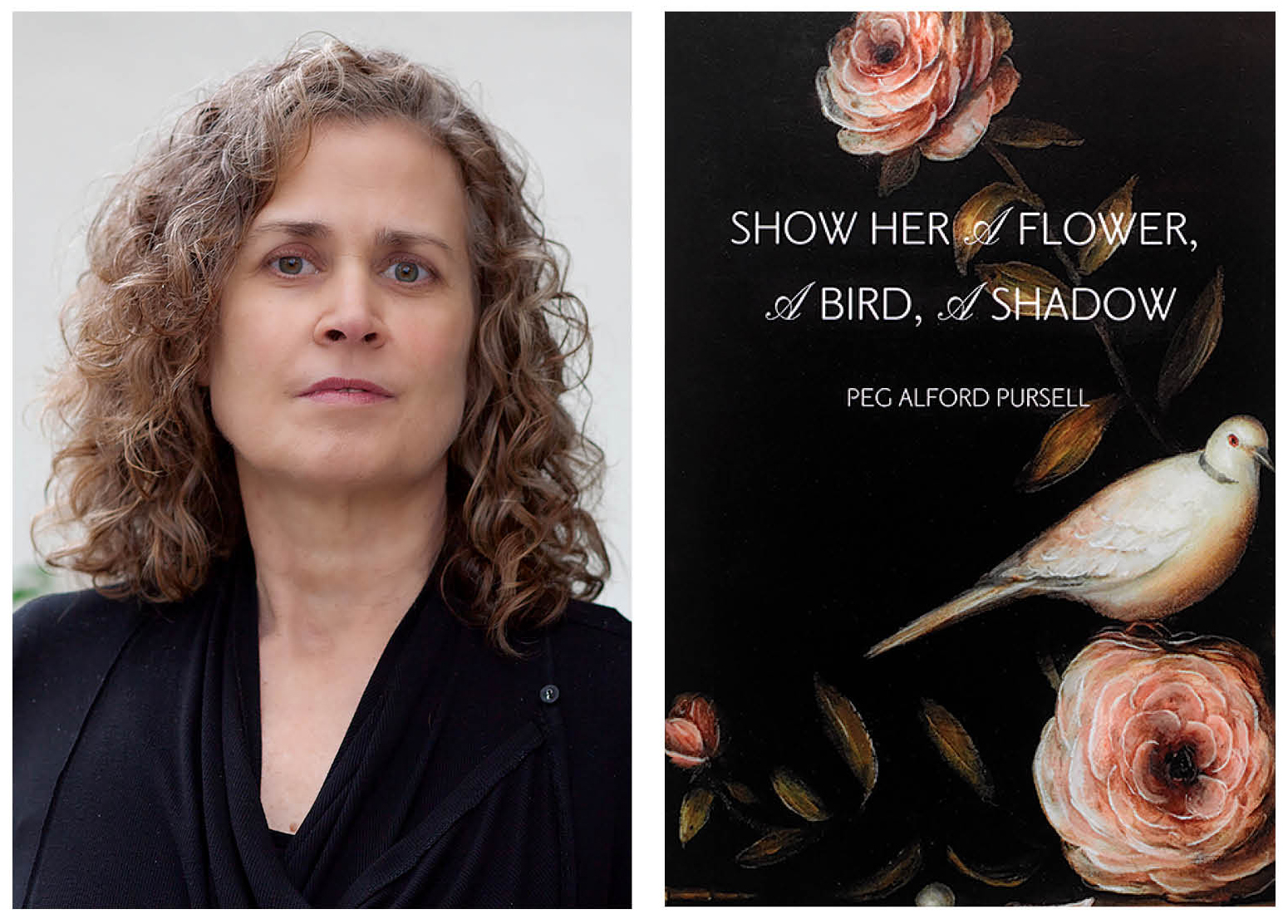Peg Alford Pursell
Age: “Over fifty.”
Residence: San Francisco Bay Area.
Book: Show Her a Flower, a Bird, a Shadow (ELJ Editions, March), a collection of intense hybrid prose—flash fiction, prose poetry, and other forms that resist categorization—that pulls a world of almost terrifying beauty into laser-sharp focus.
Editor: Ariana Den Bleker.
Agent: None.
Recently I returned to the town where I grew up and where most of my family still lives. I went there to attend a wedding, to visit family, and to give readings from my first book in (somewhat) nearby Pittsburgh and Washington, D.C. There is still no bookstore in my hometown, nowhere for a girl to window-shop and superimpose her reflection on a book jacket. I grew up knowing no one who made a living by writing, no one who wrote as a matter of course. Until college, I’d never been to a literary reading.
This experience, or lack thereof, isn’t particularly unique, but it may have a lot to do with why I didn’t take my writing seriously until later in life. I was in my late thirties when I thought about learning to write, seeking entry into a then-unconventional MFA program—Warren Wilson, the first low-residency program (and, I might add, the best in the country). I was a single mother who taught in the public education system. I stole spare moments, usually in summer, to write. And though I’d entered and won a prestigious short story contest, I still didn’t understand my need to write, or to publish as the necessary completion of the creative act.
During that recent trip to my hometown, I visited my sister and her husband, two lovely and gifted people who paint, play music, teach school—and, for the past year, have run the region’s playhouse. When my vivacious brother-in-law greeted me, he said something that took me aback. I didn’t register the exact words, but they had to do with his excitement about how we three are doing big things at an age when most people are supposed to be winding down—he and my sister taking over the theater and me publishing and promoting my book.
The surprise I felt was similar to the one that anyone over fifty has experienced when passing the plate glass of a storefront, say, on the way to the post office. You catch your reflection: Can that aged face really be yours? It can. It is. But you go about your business—collecting your mail, recycling junk flyers—and the image is gone, never to supplant the picture of yourself you hold in your mind’s eye.
Though it’s true that this is my first published book, giving readings, finishing a new book, and sending out work for publication are my daily activities—simply part of what it is for me to be in the world. I’ve come to understand the necessity. And I’ve come to understand that the act of creating follows its own imperatives. Writing—a story, a poem, a book—takes as long as it takes. To publish a first book over the age of fifty? I’m glad to say it doesn’t seem that unusual to me. I’m looking forward to the next one.
As for practical advice, I’d offer that the essential value resides in respecting your own process and creative imperatives, in pushing through the self-doubts that all art-makers experience—that advice isn’t age-specific, of course. For me it comes to this: Never stop. There exists only one moment—the last—at which it’s too late for anything.









